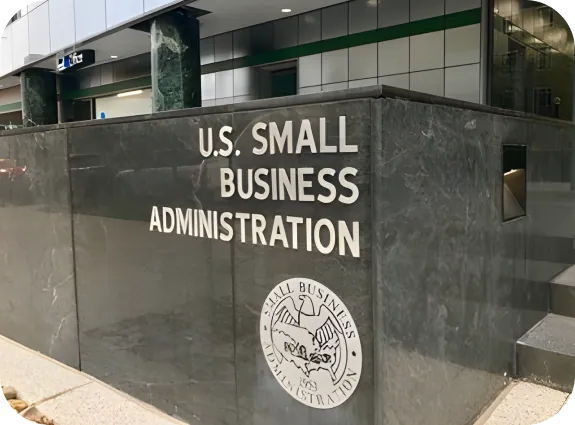Business owners have two mainstream choices when funding a commercial venture, which are SBA loan rates and hard money loans. Each of them has its own advantages, risks and prices. Their comparison can be understood and this understanding can enable you to make better financial decisions in relation to your business.
In this article, we will discuss the main distinction between SBA loan rates and hard money financing, the interest that makes each of them an attractive choice, and how to choose the one that conforms to your business objectives.
What Are SBA Loans?
SBA loans are federally-supported loans, that is, loans made by the government to assist small enterprises in gaining access to low-cost finance. The funding is provided by banks and the lenders, and SBA secures a percentage of the loan thereby reducing the risk associated with providing the loan.
The competitive SBA loan rates of these loans are one of the largest benefits as it is often significantly lower than the alternative options of lending privately. Purchases of commercial real estates, construction projects and expansion of businesses are particularly helpful with these loans.
What Are Hard Money Loans?
Hard money loans are short term loans which are commonly provided by a privately owned lender or investment group. As opposed to the SBA loans, hard money is not backed by the government. It is more or less a matter of the worth of the collateral (usually real estate) than the credit history of the borrower.
Although this makes them quicker to acquire, a hard money loan is more expensive in terms of interest rates, shorter payment time, and other charges. These are frequently employed in fast investing, real estate flipping, or projects in which speed is considered to be of more significance than price.
SBA Loan Rates: Why They Matter?
The most attractive feature of SBA loans is that they have low and constant interest rates, as compared to hard money loans.
- The current SBA loan rates (in 2025): The rates are usually between 9 to 11 percent depending on the program and the lender.
- Repayment terms: Repayment periods may be extended as long as 25 years in case of real estate projects.
- Fixed and variable rates: There are a lot of SBA loans with fixed rates, which provide long-term stability.
All these benefits ensure that SBA loans are a good option when the business wants to pursue a commercial project requiring constant and affordable funding.
Hard Money Loan Rates: A Quick Look
Contrasting, hard money lending are significantly more likely to have a very high interest rate:
- Average rates: This is usually 10-18 percent.
- Short-term structure: It is normally due in 6 months to 3 years.
- Added charges: origination and closing fees may also add to the cost.
To those borrowers who require money quickly or otherwise fail to secure a loan in the more established and traditional funds, hard money is their savior, but at a very high cost.
Comparing SBA Loan Rates vs. Hard Money
The following is a summary of the differences:
| Feature | SBA Loan Rates & Terms | Hard Money Loans |
| Interest Rates | 9%–11% (low) | 10%–18% (high) |
| Approval Time | Weeks to months | Days to weeks |
| Collateral | Terms are flexible, but required. | Based heavily on real estate |
| Repayment Terms | Up to 25 years | 6 months – 3 years |
| Best For | Commercial long term projects. | Short-term or urgent deals |
When to Choose SBA Loan Rates?
SBA loans are ideal if:
- You want to have the lowest financing cost.
- Your project is long-term such as real estate development or business expansion.
- You qualify according to your credit history and business performance.
- Predictability and stability are significant.
Concisely, SBA loan rates are applicable to those businesses that require long-term finance that is reliable.
When Hard Money Works Best?
Hard money loans suits better when:
- You require instant capital to get a property or bridge a deal.
- There is no traditional financing because of credit or eligibility problems.
- Your project is a short-term one such as in flipping a commercial property.
The trade-off is increased cost, however, to certain business owners, speed is more important than cost.Before committing, there are benefits and risks of using hard money loans that should be considered.
Finally, the decision to go either with SBA loan rates or hard money financing will be determined by your project schedule, budget and risk tolerance. However, it all depends on the question, Which Property Loan is Right for You?
The SBA loans are more affordable and stable, whereas the hard money is more successful in those cases when urgent funding is essential.
Why Work With LoanLocker?
The selection of proper financing can either make or break your commercial project. At LoanLocker, we have the expertise to guide the businesses through the maze of SBA loan rates and other business financing sources.
That is why clients have confidence in LoanLocker:
- Professional advice: We streamline the process of loan and make a comparison of SBA loans and the hard money.
- Connection to numerous lenders: You are connected with the most appropriate programs.
- Tailored services: Our team will be on your side to get the correct funding to your unique project.
Be it in long term expansion with SBA loans or in fast-track hard money, LoanLocker is the partner you can rely on in commercial financing.
Final Thoughts
The decision will be based on your priorities when comparing the SBA loan rates of commercial projects and that of hard money loans. In case of long-term affordability and stability, SBA loans are the clear-cut winner. In case speed and flexibility are more important, hard money can be the correct solution.
Regardless of which option you take, when you work with an established collaborator such as LoanLocker, you can be certain that you make the most financially correct decision in the best interest of your business.
Ready to find your options? You can start smarter financing today by visiting https://loanlocker.com/.

